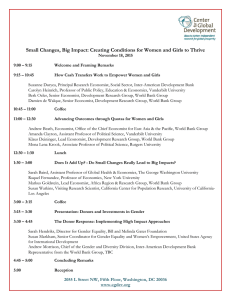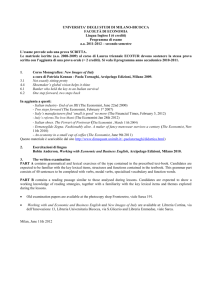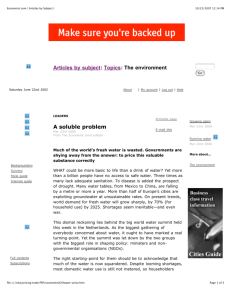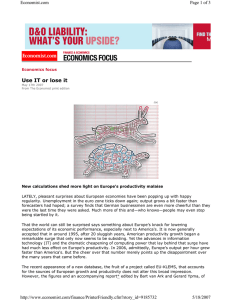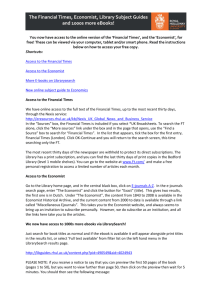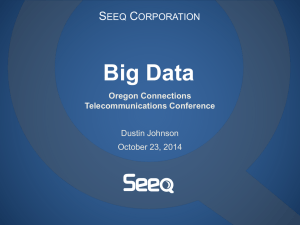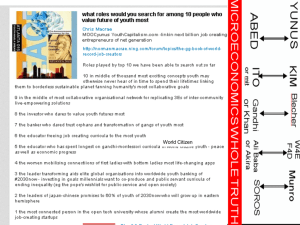The state of the Data Deluge today
advertisement
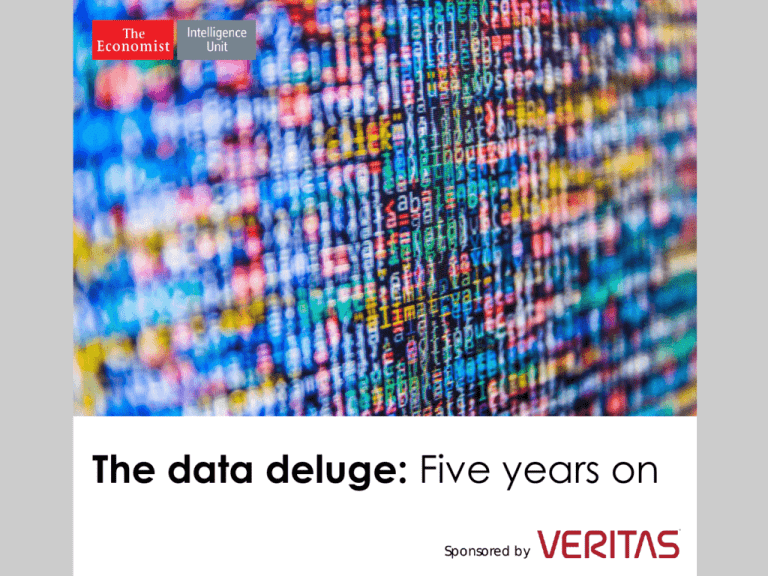
The data deluge: Five years on In 2010 The Economist published “The data deluge”, a cover story by business correspondent Kenneth Cukier. It introduced the term “big data” to a general audience. Since then the role of data in business and society has only grown. Data are the oil of the information economy; a vital corporate asset. The slides that follow show how the data deluge story has progressed since 2010. For more: http://www.economist.com/node/15579717 The amount of data in the world is constantly expanding and doubles about every two years. Database pioneer Jim Gray liked to refer to terabytes as “terror bytes” – data so huge that they were scary. For more: http://www.economist.com/node/15557421 Data with destiny Global Internet traffic, in zettabytes In 2015 the amount of data transmitted through the Internet reached about 870 exabytes of data. In 2016 we enter the “zettabyte age” as global Internet traffic rises above 1 zettabyte (about 1 trillion gigabytes). For more: http://www.theworldin.com/article/12107/charting-change The amount of data in storage, meanwhile, is predicted to reach 44 zettabytes by 2020. However, there are fears that the world’s total data storage capacity will not be able to grow fast enough to meet demand. For more: http://www.weforum.org/agenda/2015/11/are-we-running-out-of-data-storage-space Moore’s Law, the idea that the power of a computer chip doubles every two years (as measured by the number of transistors), underpins the digital age. It celebrated its 50th birthday in 2015. But the law is starting to slow slightly – not because of technology but economics. The cost to produce ever smaller chips is increasing. For more: http://www.economist.com/news/business/21648683-microchip-pioneers-prediction-has-bit-more-life-left-it-ever-more-moore Data are growing not just in volume but variety too. It is now estimated that 80% of data are unstructured, meaning they have no predefined data model. This presents new kinds of data management challenges: a plan by the city of Chicago to open its data to software developers requires cleaning up 10 billion lines of unstructured data. For more: http://www.economist.com/news/united-states/21576694-cities-are-finding-useful-ways-handling-torrent-datanumbers Many governments have made the data they compile accessible for public use – called the “open data movement”. There is a correlation between those countries that are most adept at making their data accessible and their lack of corruption. For more: http://www.economist.com/news/international/21678833-open-data-revolution-has-not-lived-up-expectations-it-only-getting One of the areas most changed by data is human resources. Companies collect reams of data on their employees, from their CVs and performance reviews to their projects and locations. Firms use the data to improve recruitment and retention, which saves money. The data also help firms to place employees on teams to increase the odds that work is done on time and on budget. For more: http://www.economist.com/news/business/21575820how-software-helps-firms-hire-workers-more-efficiently-robot-recruiters Data power artificial intelligence (AI) algorithms and the technique of “machine learning”. The idea is not to explicitly programme a computer but to feed it enough data so it infers what to do, be it to drive a car or to detect cancer. For more: http://www.economist.com/news/leaders/21650543-powerful-computers-will-reshape-humanitys-future-how-ensure-promiseoutweighs As more data are generated and processed by algorithms, many cognitive tasks now performed by human workers will be automated. According to a University of Oxford study, many of today’s jobs are likely to be taken over by computers in the next two decades. An understanding of what is possible with data and AI, and what remains the preserve of human intelligence, will be vital for both companies and workers in the coming decades. For more: http://www.economist.com/news/briefing/21594264-previous-technological-innovationhas-always-delivered-more-long-run-employment-not-less In its leader article to accompany ”The data deluge”, The Economist wrote that “market incentives will … come into play as organisations that manage data well are favoured over those that do not”. That process is still under way. But while the risks associated with the data deluge, including privacy, security and surveillance, are still with us, companies now recognise that mastering data is a vital component of success. For more: http://www.big-data-book.com/
